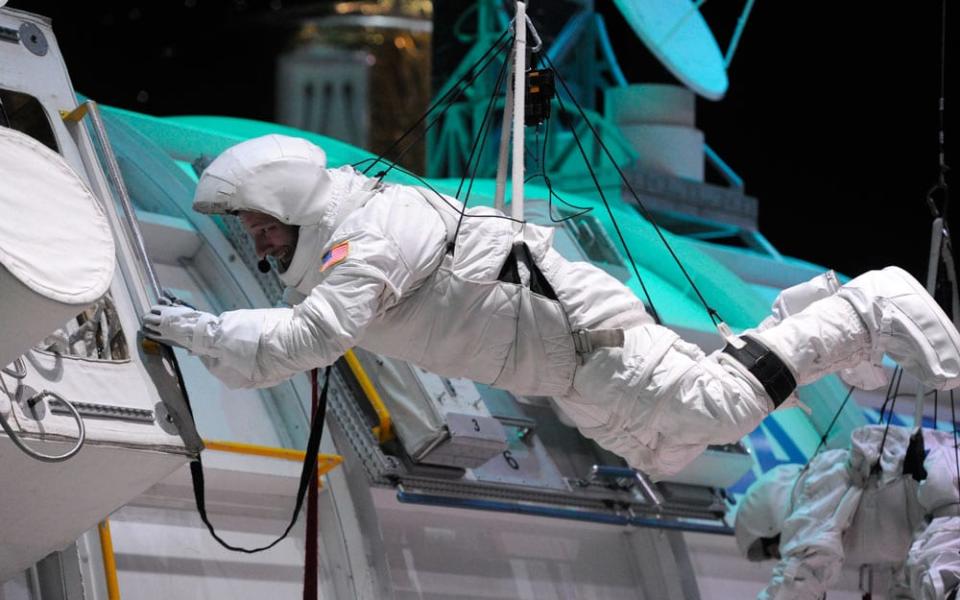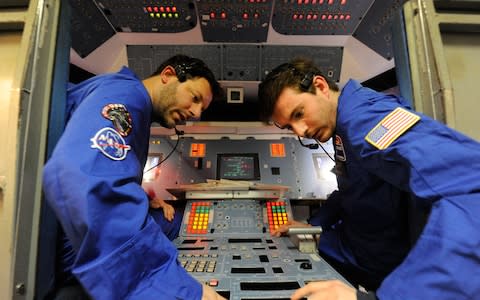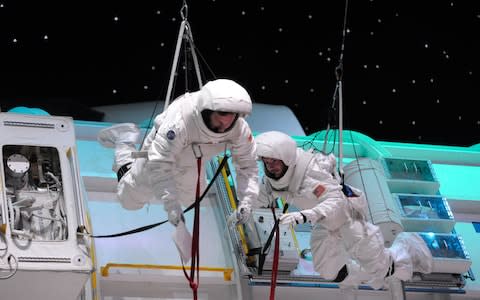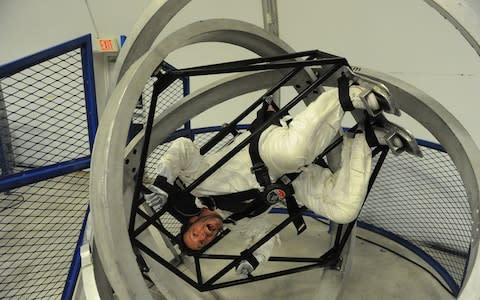Travel on trial: To infinity and beyond? An out-of-this-world weekend at Space Camp

Houston, we have multiple problems. There’s an ammonia leak on the shuttle that could kill us all, if the headlong collision course with Earth doesn’t first. Oh yes, and we’ve just left two astronauts floating in orbit.
Our first Space Camp mission had not gone well. We – the crew of misfits in flight suits and headsets – somehow managed to survive, via a daring crash-landing into a Florida swamp.
But we’d still killed two spacewalkers, caused millions of dollars in damage and written off a space shuttle. This Nasa lark was harder than it looked.
• Travel on Trial: A roller coaster of a ride – in a sidecar in the Atlas Mountains
Space Camp, as the name suggests, is a weekend-long retreat where guests are immersed in the art of astronauting. Based at the US Space and Rocket Center near Nasa’s headquarters in Huntsville, Alabama, it’s historically been targeted at teenagers, but of late the doors have been opened to adults too.

Ahead of the 50th anniversary of the moon landings at the end of this week, I decided to take the giant leap and sign up myself.
Space Camp is tough. I arrived expecting to be faced with simple challenges, but they were never less than demanding – and in some cases downright fiendish.
On our first, catastrophically flawed “mission”, we ended up desperately pawing through manuals, seeking solutions to the warning lights flashing on the simulator as we nosedived towards destruction. As the shuttle span out of control, the wail of despair from our “mission commander” reverberated through our headsets. In Space Camp, everyone can hear you scream.

Space Camp is equal parts science camp. Or to put it another way, it’s not all “bouncing around shooting lasers”, as one of my friends suggested beforehand.
After an opening briefing in Space Camp’s mess hall, my team of 12 – ranging from late 20s to early 40s, and a mix of men and women – was taken over to the Astrotrek lab, where we each rode the 1/6th Gravity Chair, designed to simulate lunar conditions.

We careened across a hangar-like room on the spring-loaded seat, taking gargantuan leaps before floating back down to the replica moon surface below.
The weekend progressed through a series of hands-on experiments and role-playing missions, all of which were in equal parts fascinating and challenging – and all decidedly more Buzz Aldrin than Buzz Lightyear. We did better on our second mission. This time, I was one of two spacewalkers tasked with fixing a problem outside the International Space Station (ISS).
It felt both tense and realistic, pulling on a heavy space suit inside the replica ISS, before getting into a roped harness and “floating” outside the airlock. I was very pleased with my contribution, working in a pair to locate and remove empty supply tanks, before securing replacements, then safely returning.
Adult Space Academy takes place once a month, costing from £433 for three days, including food and accommodation (spacecamp.com). American Airlines operates daily flights from London Heathrow to Huntsville via Charlotte or Dallas/Fort Worth from £622 return (americanairlines.co.uk). For more information, see huntsville.org and alabama.travel.

Very pleased, that is, until it was pointed out that my space boots were on the wrong feet and my suit wasn’t sealed properly.
We were housed in purpose-built dormitories called “Habitats”, which look like humungous toilet rolls, piled atop each other beneath the lifesize Saturn V rocket (there’s an option to stay at a Marriott, which two men in my team took up). Inside the Habitats, we each had a basic room, sleeping in bunks with a shared bathroom.
The missions and experiments continued until graduation on Sunday lunchtime. We built and fired our own rockets to test the principles of thrust; we practised first aid in low gravity and were spun around by the “multi-axis trainer” – a ball-like machine that replicates the disorientation of a tumble spin during re-entry. Thankfully, all of us managed to hold on to our breakfasts, although one of the “Marriott Two” did look Martian around the gills.
The only time we got competitive was when we were split into two teams, and charged with building rival heatshields to protect eggs from a blowtorch. It quickly became about beating the other group, as we created our prototypes from a selection of materials. Sadly, our effort lasted 90 seconds before the “eggstronaut” was burnt and blackened.
By Sunday afternoon, it was odd to step off campus and come back down to Earth. It felt like we’d been at Space Camp for a week, taking on board an incredible amount of information. As an experience, this is just as rewarding for an adult as one imagines it is for the American high schoolers who flock here. As one of our trainers quipped: “It isn’t hard: all you have to do is put some space in your diary.”

